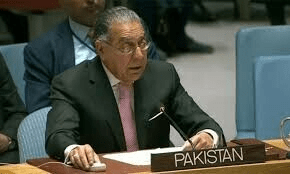IT might seem like a muted cry for help in these times of turbocharged politics and loud mutual recriminations, but an utterance of literally globe-changing significance has passed unnoticed. For the first time, climate scientists have said that the searing heatwaves that have scorched last swathes of the European continent — from Poland and the Czech Republic to France and Portugal — are the result of climate change that is created by human activity. Thus far, the scientific community has suggested the link between climate change as a global phenomenon and specific weather patterns, even extreme ones. But now we have the first, clear signal from leading climate scientists that a specific extreme weather event is the consequence of human-created climate change.
It would be a terrible mistake to miss the importance of this event, especially when one considers that weather events around the globe are linked to each other. For example, meteorologists who have studied the weather patterns that caused a massive cloudburst and catastrophic flooding in Pakistan in 2010 have identified its link with an unprecedented heatwave in Russia in July of that same year. The current heatwave that has scorched the European continent is connected with weather phenomena from as far away as Greenland and the North Atlantic, which are impacting regions from Europe to the Middle East in different ways. As extreme weather events become more intense and more frequent, no part of the world can afford to be complacent.
Here in Pakistan, we can only sit and watch as climate change wreaks its terrible price upon our society and economy. From melting glaciers, disturbed monsoons, dry rivers and unpredictable flooding, to disturbances in the cropping cycle and searing heatwaves of our own, nature holds our country firmly in its grip. And nature is utterly indifferent to our squabbles and borders. Before we can even talk about what is to be done to face this challenge, we need greater awareness in our society about climate change. This is not a job that the media alone can do. It requires greater scientific literacy in our society, and greater recognition of the fact that weather and climate are now widely intelligible to the human mind and adaptive strategies exist. Perhaps there is a case here for including climate education in our school curricula, and running more awareness raising campaigns about the human impact on climate and the environment more widely. There is also case here for upgrading our weather monitoring capability, and strengthen the ability of local and provincial authorities to respond to weather-related emergencies. In our present state, Pakistan is a sitting duck for nature’s wrath. Somebody, somewhere in a position of power needs to wake up to this growing emergency that surrounds us all, and clouds our future. The only question now is: who?
Published in Dawn, July 2nd, 2019










































